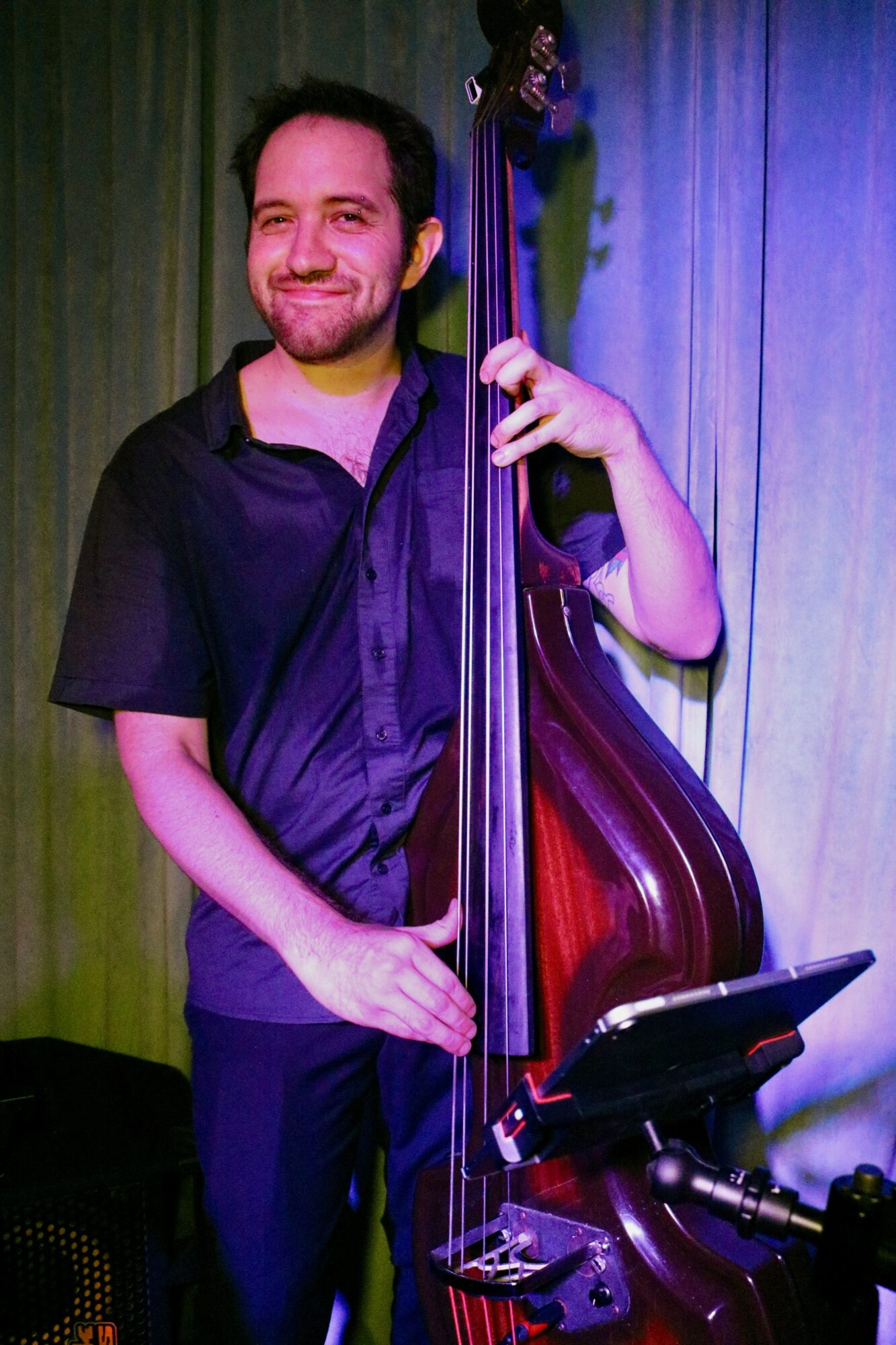

We recently had the chance to connect with Jacob Kleiman and have shared our conversation below.
Hi Jacob, thank you so much for taking time out of your busy day to share your story, experiences and insights with our readers. Let’s jump right in with an interesting one: What do the first 90 minutes of your day look like?
The first thing I do is check what time I need to get to work — whether it’s a salsa gig in East L.A., an ’80s cover band in Ventura, or backing a class of washed-up rock prophets and self-anointed gurus at the Musicians Institute in Hollywood, a place that feels equal parts conservatory and halfway house for the musically deranged.
Before I face any of it, I indulge my small collection of morning vices – the things that make life tolerable and, occasionally, beautiful. I scroll too long, curse myself for it, then light the half joint I left in the ashtray the night before. There’s always music — not work music, but the good stuff. The Stones. The Ramones. Bob Marley. Whatever fits the air that day.
The kitchen is usually a disaster — empty bottles, dirty glasses, the ghosts of last night’s version of me. I make coffee like it’s religion. French press. Costa Rican beans. Scalding hot with a splash of milk. I drink all of it – four cups, give or take. I sit back while the caffeine rewires my brain just enough to remember who I am.
If I’ve got time before heading out, I’ll lay out my charts and setlists. It’s the calm before the chaos, the small moment when I can almost trick myself into believing there’s order in the noise.
Can you briefly introduce yourself and share what makes you or your brand unique?
I’m a musician — a bass player. My brand is meat and potatoes: pay homage to the record and play the damn song right. No bullshit. No ego. Just something real that locks in with the drums, the guitar, the keys. Groove first, always. I live and die by Time — capital T. If a drummer’s rushing or dragging, I’ll call it out. Life’s too short for whack-ass time.
But underneath that foundation, I’ve got a bit of a trickster streak. I like to mess with people — in music and in life. It’s the kind of mischief only a bass player can pull off. I’ll flip the root notes, shift the harmony, or slide into a different pocket just to see if anyone’s listening. Sometimes I’ll toy with time — stretch it, play behind the beat Pino style, even overlay a different signature. When it works, it can lift the whole band into something unexpected and alive. When it doesn’t, well… chaos has its own kind of beauty too.
Amazing, so let’s take a moment to go back in time. Who were you before the world told you who you had to be?
Before I was a full-time musician, I was a software developer — picture the narrator of Fight Club, stuck in a loop of consumerist comfort. I measured happiness in Amazon deliveries: khakis, mid-century modern furniture, the newest iPhone. My life was curated, not lived.
When I lost my job, I panicked. My identity had been built on a salary and a job title, and suddenly both were gone. But somewhere in that free fall, I found something real. Losing all hope was freedom.
I hit the road on my first DIY tour, making a hundred bucks a day, bathing in dive bar sinks, sleeping wherever the night left me. It was dirty, uncertain, alive — and for the first time, I felt like I was exactly where I was supposed to be.
Is there something you miss that no one else knows about?
About a year ago, I took what was left of my software money and bought a one-way ticket to Bologna, Italy. I didn’t go looking for meaning — just distance. I got a tattoo, ate cheap pasta, and spent too many afternoons sitting in cafés pretending to read.
Then I met a green-eyed French girl. The kind that makes you forget what language you’re speaking. She taught me how to drink real coffee — not that American sock juice — and how to slow the hell down. She taught me about touch, about honesty, about the kind of connection that burns clean for a week and haunts you for a lifetime.
I walked her to the train station. We held each other like we knew it was the last time, because it was. I watched her go, and that was it.
I still think about her. No one knows that. Until now.
So a lot of these questions go deep, but if you are open to it, we’ve got a few more questions that we’d love to get your take on. Whom do you admire for their character, not their power?
I admire Yoshinobu Yamamoto of the Dodgers. The guy pitched a complete game and over seventeen innings in the World Series like it was nothing. That’s not talent — that’s grit, obsession, and refusal to quit. His line stuck with me: “Losing isn’t an option.”
I think about that when I’m on my third gig of the weekend, half-asleep, fingers raw, sweat cutting through last night’s hangover. The crowd’s shouting for an encore, and every muscle in me wants to call it. But that voice kicks in — losing isn’t an option.
You dig a little deeper, find something left in the tank, and play. Because that’s the job. No one cares how tired you are. The lights are up, the people paid, and in this line of work, the show doesn’t stop until you do.
Okay, so before we go, let’s tackle one more area. When do you feel most at peace?
I feel at peace when I’m playing music — really in the zone, where everything else falls away. Locked in, grooving, listening, reacting — it’s a strange kind of calm born from chaos. I love the buzz before a gig, that nervous energy that feels like it could tear you apart, and then the way it settles in once you start. By the end, my body aches, my hands are sore, but there’s a quiet high in the exhaustion. I reward myself with a smoke or a beer — sometimes both — and let the adrenaline drain out. The peace isn’t soft or easy. It’s the kind that comes from giving everything, surviving it, and walking away alive. That’s when I’m at one.
Contact Info:
- Instagram: https://www.instagram.com/j_funk69/?hl=en
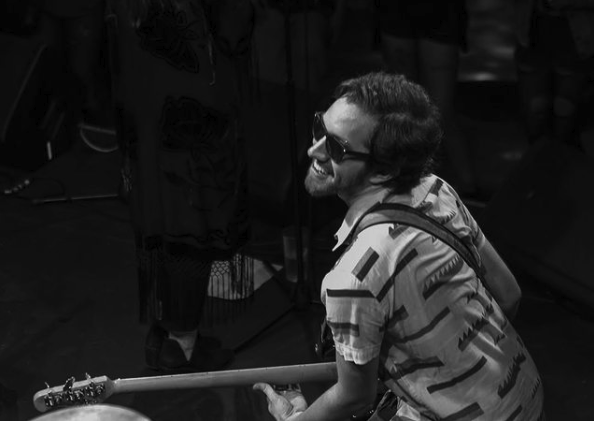
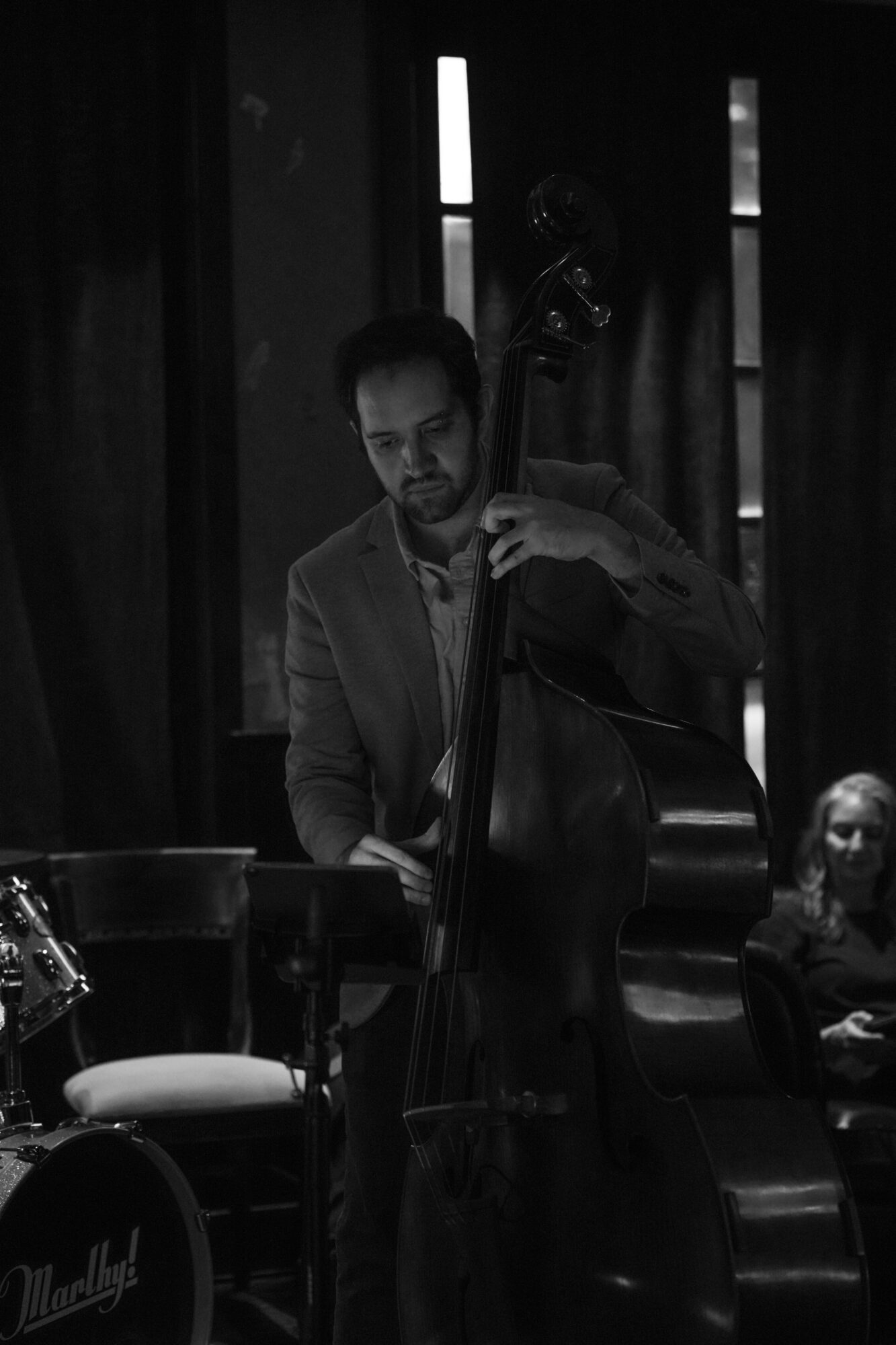
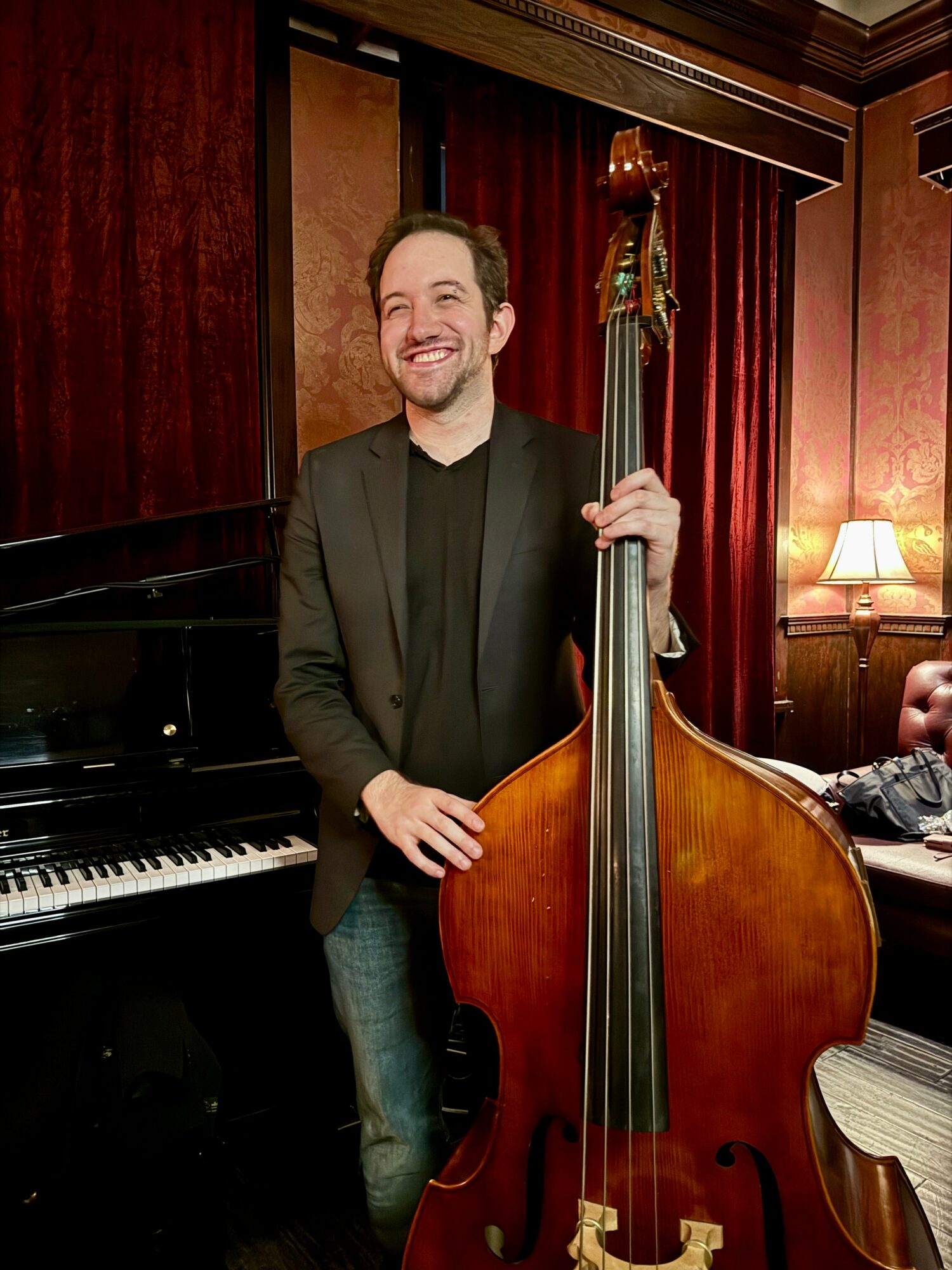
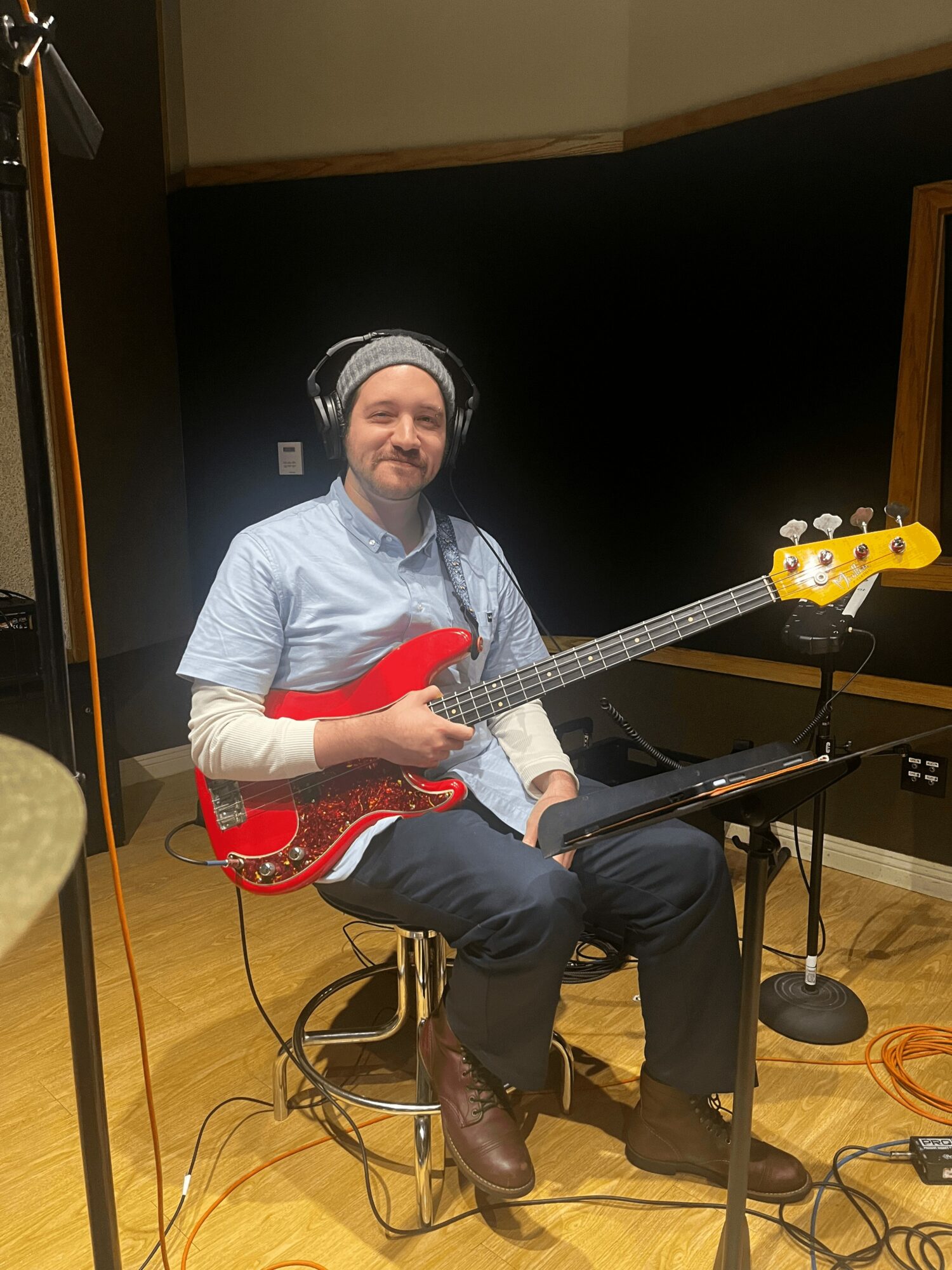
Image Credits
Nataly Gonzalez, Rainey of the Wellesborne, Sammy Yang














